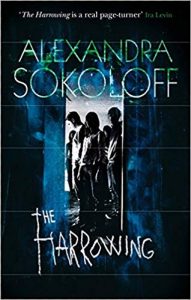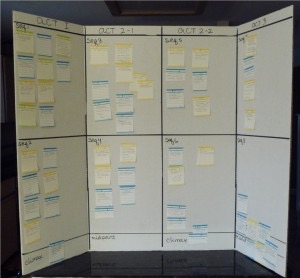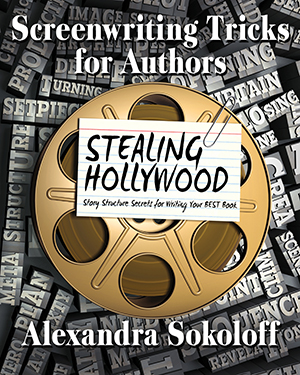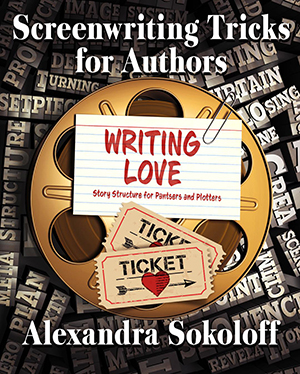It’s an important question. Because “Write what you feel like writing!” is a great idea if you’re calm, relaxed, and sure. But maybe not so great if you’re approaching it from a state of panic.
And let’s face it. If you want to make money at writing, there are business considerations to, well, consider.
But if this is your very first book or script, the most important thing is to find an idea that you can finish.
- An idea and characters and world that you can fall in love with, enough to keep you writing every day, at least for 15 minutes a day, for nine months or a year.
- An idea that you can test from the beginning to see if there’s enough plot to finish the book: which I recommend you do with Index Cards. Even if you’re a pantser! More on that below
- You need to find a writing community, online and in person, with experienced writers in it, that you can run your idea by to make sure other people will get excited about it, too.
- And you must finish the book.
No dual projects. No chasing after shiny new ideas.
In all the years I’ve been writing and teaching, I have never seen a beginning writer turn into a pro writer by pursuing multiple projects. The chances are abysmal. Suck it up and finish one.
And if this is your first book— never give up something you’re passionate about for commercial considerations. With your first book or script, you are essentially teaching yourself how to write, and the only real requirement is that you love it.
When I was deciding on the first book I was going to write, I’d already been a screenwriter for a long time. I knew how to write and I knew how to make money writing. But I knew absolutely nothing about the publishing business. And I’d never written prose before, ever.
I was also still working full-time as a screenwriter. So writing my first book was very much a late-at-night, I’m-going-to-do-a-page-before-I-crash-no-matter-how-I-feel kind of proposition. If you know what I mean!
And I chose to write The Harrowing mainly on the basis of: “I know I can pull this one off.” It was spooky, which I knew I was really good at, I loved the characters, and they had great chemistry on the page, there was an unusual twist, and it was small enough that I didn’t think I was in over my head as I was figuring out how exactly to write a novel.
Knowing what I know now, I would have done some things differently. Including choosing a bigger story!
 But maybe not! Because as it turned out, writing that book worked just fine: the book sold big enough that I knew I could make a living as an author, it sold to multiple countries, and it was nominated for three high profile awards in two different genres which was a great way to enter the writing community.
But maybe not! Because as it turned out, writing that book worked just fine: the book sold big enough that I knew I could make a living as an author, it sold to multiple countries, and it was nominated for three high profile awards in two different genres which was a great way to enter the writing community.
But really, the main thing was, I pulled it off. I finished it, and I finished it well enough to launch a career as an author.
So yeah. If this is your first book, or script, Can you pull it off? is a pretty major question to start with!
But how do you know?
That’s something that you can figure out pretty quickly with Index Cards.
I’ve taught the Index Card Method since the beginning of my teaching writing, because it’s such a quick and effective way of structuring a story. But it’s also a great shortcut to find out if there’s enough to your story idea to really make a book.
And—it’s a way to find out if you’re excited enough about the idea that it’s going to sustain you through months or quite possibly a year of writing. And so much more fun than other brainstorming methods.
Want to try? Here’s a video and text lesson on Brainstorming with Index Cards.
Play around with it this weekend, and see if there’s enough book (or script!) in your idea.
But if you’ve figured out how to write a book, and in fact have written and published a few on some level, or written and optioned or sold some scripts, we have to have a different conversation.
We need to embrace the business side of writing as part of the idea-finding process.
Which we’ll do next post!
- Alex





